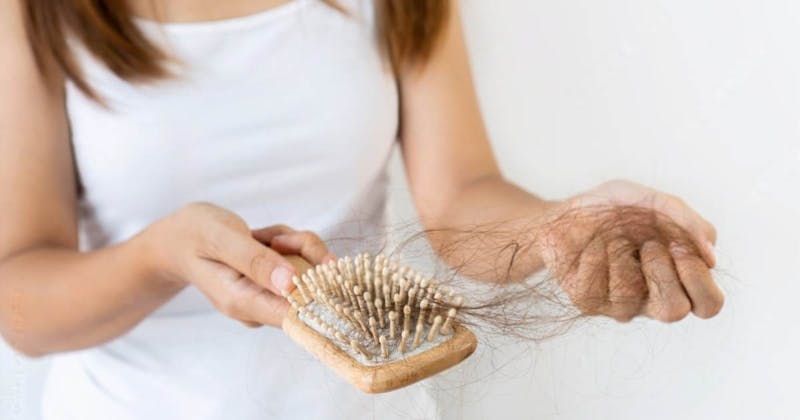Rooted in Results Let’s Get Growing
Hair loss is a symptom. We begin every journey by finding the cause, so your treatment plan isn’t just hopeful—it’s strategic, personalized, and proven to work.
Contact Our Team
Summer is in full swing. It’s time to get outdoors and enjoy the sun. But it’s no fun if you’re concerned that sunscreen can cause hair loss, especially if you have thinning hair, alopecia, or age-related baldness. If you go online, it’s hard to know what to believe about how sunscreen affects hair loss.
So what is the truth? Read on to find out and learn 5 ways to protect yourself.
Before the hair loss question, let’s talk about overall safety. Dermatologists recommend wearing sunscreen every day. These products block UV light to reduce the risk of skin cancers and visible signs of aging. But not all sunscreens are created equal.
When you buy sunscreen (or cosmetics that include sunscreen), be aware that some ingredients are considered safe, others are considered unsafe, and still others require more data to make the call.
Zinc oxide and titanium dioxide, which use minerals that sit on top of the skin, are considered safe. However, they are harder to blend into the skin. There is some observational evidence that titanium dioxide affects alopecia, so try to stick with zinc oxide as the primary ingredients.
There are reasons to be concerned about certain chemical ingredients in some sunscreens that are absorbed into the skin, making them less visible. PABA, oxybenzone, and octinoxate are among the chemicals generally considered unsafe. Other chemical ingredients need more research to determine if they are safe or not.
Studies show that scarring alopecia is becoming more common, with suspicions that there is an environmental trigger. Some observational studies point to correlations between facial sunscreens and scarring alopecia. However, no evidence-based research to date shows that sunscreen directly causes scarring alopecia.
Hair and scalp sunscreens have become very popular. Studies have shown that people with scarring alopecia are more likely to be allergic to certain ingredients commonly found in many personal care products. These allergies can cause inflammation on the scalp, which can affect hair follicles and possibly contribute to scarring alopecia.
Those with scarring alopecia need to be especially careful about products that touch the scalp. Even though sunscreen ingredients have been shown not to cause hair loss, there is ongoing research about the possible relationship between certain chemicals, particularly titanium dioxide, and scarring alopecia. Scientific results are inconclusive and may apply to only a small group of people genetically predisposed to react to these ingredients.
The bottom line is that if you have alopecia, be very careful about products that reach the scalp.
Research data shows no direct causal evidence that sunscreen can cause hair loss. There’s also no evidence proving that any amount of sunscreen can prevent hair loss.
What can we do with the current information about whether sunscreens can cause hair loss? While there is no proven link showing that sunscreen causes hair loss or accelerates it, we can be smart about sun protection, especially those with sensitive skin or alopecia.
Some studies observe that there may be some link between hair loss and titanium if applied directly to the scalp. Plus, the sun weakens hair by removing moisture from follicles and strands. Dry, brittle hair loses its shine and becomes difficult to style. Although you won’t lose hair from being in the sun, too much breakage can give the illusion of hair loss.
These recommendations can keep your hair safe from damage in the summer:
You can have fun in the sun but do it right. Take the right steps to protect your skin and hair this summer by knowing what’s in your sunscreen, applying it correctly, wearing a hat, and limiting sun exposure. Take control of possible hair loss, especially if you have alopecia. Speak with a Medi Tresse medical expert in person or virtually and get your personalized hair loss treatment plan.